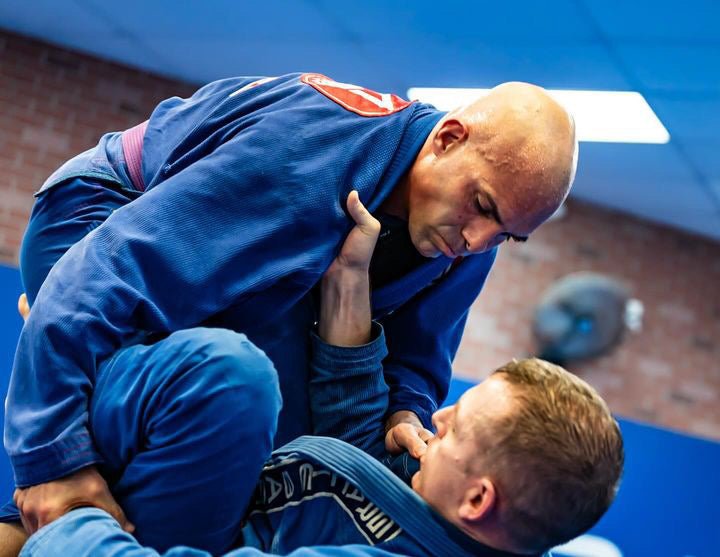
Strength Training for Jiu Jitsu
Share
Strength Training for Jiu Jitsu
A lot of our local clients participate in Jiu Jitsu. In fact, many of them found us through our local Jiu Jitsu school where we train ourselves. Some of them train mainly as a hobby, but we have a pretty good amount of competitors that have trusted us with their strength development.

Our Jiu Jitsu clients range from Masters athletes down to Junior competitors, all of which travel the world to compete in the biggest and most competitive platforms in the sport.
I began training jiu jitsu back in 2016. During that time I have continued to refine what I believe the supportive roll strength training can provide when applied correctly. As with all other sports, strength training must support the sport, building the general qualities necessary to improve on the mat. At the same time, rehearsing the sporting movements, trying to be sport-specific in the strength training environment, will only lead to overtraining.
Some of our older clients benefit from fat loss protocols while looking to improve their fitness off the mat. Our youth athletes benefit from learning strength training fundamentals while developing hypertrophy. All clients benefit from developing overall and strength along with flexibility and joint mobility.
Strength training, contrary to many "experts" claim, will not prevent injuries, especially in a sport like jiu jitsu, where the athletes are attempting move their opponents limbs in the opposite direction in which they were designed to move. Strength training in general, offers several benefits to Jiu Jitsu athletes to help decrease the severity of injuries when they occur while improving performance.

Here are our top 8 benefits strength training can provide for Jiu jitsu athletes.
1. Improved Joint Stability
Strengthening muscles around joints, such as the shoulders, knees, and ankles, can enhance joint stability, reducing the risk of ligament and tendon injuries during grappling.
2. Enhanced Core Strength
A strong core provides better balance and stability, essential for maintaining control during Jiu Jitsu techniques and reducing the risk of back injuries.

3. Increased Bone Density
Strength training can improve bone density, making bones more resilient and less susceptible to fractures when posting or withstanding the impact of take downs.
4. Better Muscular Endurance
Building muscular endurance through strength training helps Jiu Jitsu athletes withstand the fatigue associated with prolonged matches which helps maintain proper technique, reducing the risk of overuse injuries.

5. Injury Resilience
A stronger body is generally more resilient to injuries. Strengthening various muscle groups can help distribute the load more effectively and protect against strain.
6. Injury Recovery
In the unfortunate event of an injury, athletes with a strong foundation from strength training often recover more quickly and are less likely to experience long-term issues.

7. Injury Prevention Exercises
Strength training can incorporate specific exercises to target common injury-prone areas, such as the shoulders and knees, helping athletes build resilience in these areas.
8. Improved Technique
Strength training can help improve an athlete's technique, allowing for more controlled movements and reducing the chances of sudden, uncontrolled actions that could lead to injury.

It's important for Jiu Jitsu athletes to incorporate strength training into their overall training regimen while also focusing on flexibility and mobility to maintain a balanced approach to injury prevention.
If you’re a Jiu Jitsu athlete, and would like to learn more about our training approach, give us a shout here and we can get on a call.
